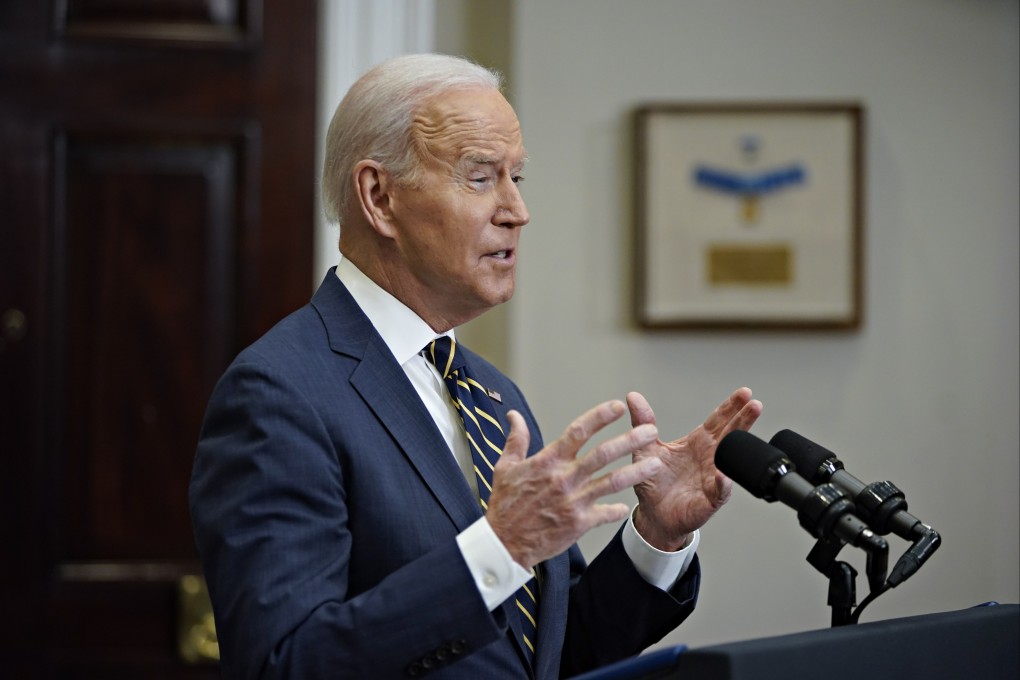US and allies move to stiffen penalties on Russia, including end to preferred trade status
- US bans the import of Russian seafood, vodka and diamonds and, along with the G7, denies Moscow access to World Bank and International Monetary Fund financing
- ‘The world is united and we stand with the people of Ukraine. We will not let autocrats and would-be emperors dictate the direction of the world,’ says Biden

The United States, fellow members of the Group of 7 economic nations and the European Union announced on Friday that they planned to deny preferential trading status to Moscow in the wake of President Vladimir Putin’s invasion of Ukraine, the latest coordinated effort to bring the Russian economy to its knees.
Revoking most favoured nation (MFN) status paves the way for major economic powers to raise import tariffs on Russian goods. The US also announced a ban on Russian seafood, vodka and diamonds and, in coordination with the G7, a collective bid to deny Moscow access to World Bank and International Monetary Fund financing.
“Putin must pay the price. He cannot pursue a war that threatens the very foundation, which he’s doing, the very foundations of international peace and stability, and then ask for financial help from the international community,” US President Joe Biden said from the White House.
“The world is united and we stand with the people of Ukraine,” Biden added. “We will not let autocrats and would-be emperors dictate the direction of the world. Democracies are rising to meet this moment.”
The Biden administration also announced an export ban on US currency, luxury goods and “any other items” identified by the Commerce Department, as well as any new US investment in Russia. Those trying to evade sanctions will face potential legal action.
